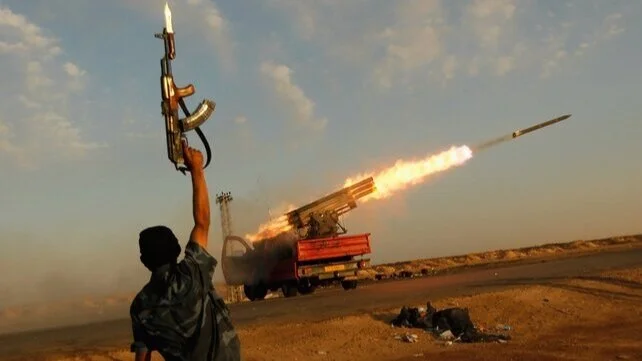Libya’s Political Culture Wars
Photo Credit Spiegel
Published through the Regional Program Political Dialogue South Mediterranean of the Konrad-Adenauer-Stiftung on October 30, 2020
The announcement of UN-brokered permanent ceasefire in Geneva and political talks in Tunisia has given renewed optimism that Libya’s elusive peace attempts are yet again within close grasp. Despite several high-profile international attempts in Moscow and Berlin (January, 2020) to broker a ceasefire and restart the political process, the battle in Libya not only resumed, but intensified, culminating in all-out war before reaching a stalemate in June, 2020. The conflict was sparked on April 4th, 2019, when self-styled leader of the Libyan Arab Armed Forces (LAAF) Khalifa Haftar launched an attack on Tripoli to overthrow the internationally recognised UN-backed Government of National Accord (GNA). The role of regional and international powers in support of both factions during the war has further entrenched positions, and added to the intractability of the conflict.
This is not Libya’s first post-Qaddafi civil war, nor indeed the first UN-brokered peace process to fall apart. The critical challenge to all peace-building efforts in Libya since the fall of Qaddafi has centred around correctly identifying the root causes and drivers of these conflicts, in order to design a peace process that addresses and resolves these issues between the key actors in the conflict. Success cannot be measured exclusively by symbolic handshakes between rival leaders or the formation of a new government. The gauge for success of any political agreement in Libya must be measured against an end of hostilities on the ground between the two factions and an era of cooperation. Libya’s UN brokered political talks and initiatives since 2015 have for various reasons repeatedly failed to achieve this. Examining the assumptions about the nature of the conflict may offer insight into why the previous political talks failed. The UN’s strategy to end the conflict contain a flawed premise which guides the process; that the warring factions in Libya – from their armed groups to their political representatives – are primarily driven to conflict by political and economic greed. The logic of the political talks attempts to address the rival parties' greed through political compromise with the belief that institutional cooperation in a unified government based on compromise will follow. Political compromise is based on distributing institutional and political posts equitably to both factions under a new unified government in order to satiate the greed of the rival parties to the conflict.
So why has this failed? This logic and process identify features of the conflict, and parties to the conflict but not its fundamental root driver that drives the majority of forces to mobilise and participate in national conflict. It is true that parts of the conflict are driven by a fierce competition to take control of the political and economic institutions of state by members of the rival factions. A number of actors see no higher ambition than to engage in conflict as a means to acquire control or exert their influence over the distribution of Libya’s oil wealth and resources. However, this logic fails to address the ways in which these rival factions will govern these institutions and exercise their new political power in a unified state, and why the majority of armed groups are driven to conflict as a result. Put simply, the peace building process identifies the power struggle, but does not explain how politicians and armed groups will exercise their power in a unified state, whether their visions of politics and power are compatible and whether institutional unification is sufficient to ensure peaceful cooperation. The failure to address the features of Libya’s power struggle can explain why the two rival factions have repeatedly failed to politically cooperate despite several high profile international agreements and attempts to reach compromise.
To read the full report download the PDF here.

